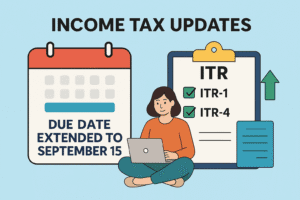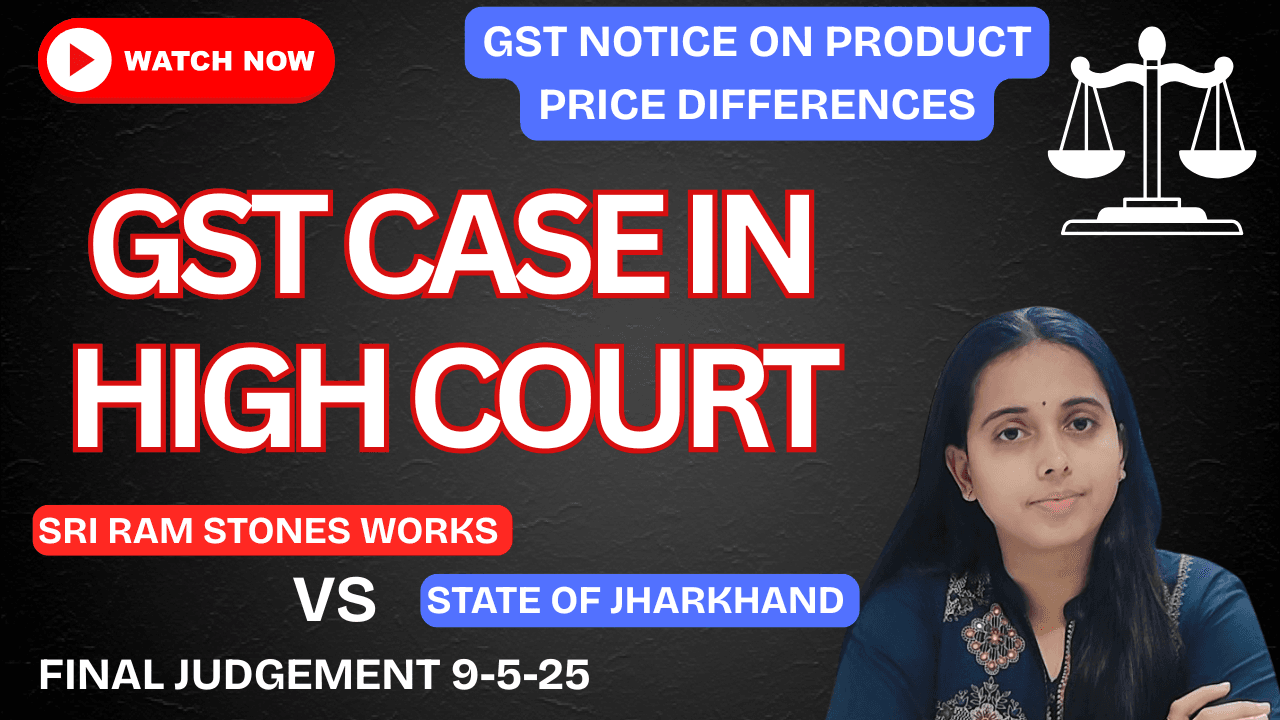GST Notice on Market Price Rejected by High Court: A Relief for Small Traders
A Story from the Ground: Shyam’s Struggle
Shyam is a small mining dealer in Jharkhand. He runs a stone trading business where he sells stone chips and boulders to local builders. A few months ago, he received a notice from the GST department. The notice claimed that he had sold his goods at prices lower than the market rate, and because of that, there was a “discrepancy” in his GST return.
Shyam was shocked. His rates were based on genuine contracts and supply-demand conditions. Still, he replied to the notice and explained his pricing. But to his frustration, he kept getting repeated notices from the department, as if his replies were never read.
Tired and anxious, Shyam decided to approach the court. He wasn’t alone—many other small dealers like him were facing the same issue. One such case—Sri Ram Stone Works vs. State of Jharkhand—has now become a landmark judgment.
Let’s understand this case and what it means for small businesses under GST.
⚖️ The Background of the Case
The petitioners were stone mining dealers registered under GST.
The GST department issued notices under Section 61 using Form ASMT-10.
The allegation was that the dealers were selling goods below market price, which created a discrepancy in their returns.
But here’s the issue: GST law doesn’t say prices must match market rates. That’s where things got tricky.
📄 What Did the Dealers Say?
The dealers:
Responded to the notice in writing
Explained that their prices were genuine, based on actual transactions
Repeatedly clarified that there was no fraud or under-invoicing
Despite this, they kept receiving fresh notices without the department properly addressing their replies.
🧑⚖️ What Did the High Court Say?
The Jharkhand High Court gave a clear and strong judgment in favor of the taxpayers. Here’s what the court said:
🔍 Key Observations:
Section 61 is only for verifying returns, not for reopening price disputes.
If a reply has been given, officers cannot keep issuing new notices without considering it.
As per Section 15 of the CGST Act, “transaction value” (i.e., the actual price paid or payable) is the basis for GST, not the market price.
Selling at lower than market price is not a discrepancy unless there is proof of fraud or manipulation.
🏁 The Final Judgment
The High Court:
Cancelled (quashed) the GST notices
Declared the officer’s actions illegal
Ruled in favor of the taxpayers
This judgment sent a strong message: tax authorities must act within legal boundaries and respect taxpayers’ rights.
📌 Key Takeaways from the Case
Here are the important lessons from this judgment:
✅ Transaction value is valid for GST purposes — not the estimated “market price”
✅ Officers cannot misuse Section 61 to harass taxpayers
✅ Once a reply is given, the department must consider it properly
✅ Legal remedies are available if you receive unjust or repeated GST notices
🧾 Practical Impact on Taxpayers
This decision is a huge relief for small traders and dealers across the country.
✨ What it means for you:
You don’t need to match your selling price with an imaginary “market price”
If you receive a GST notice, always reply in writing and keep records
If the department ignores your reply, you can go to court and seek justice
The GST system is meant to be fair and transparent — not a tool for harassment
📘 Conclusion: Know Your Rights Under GST
The case of Sri Ram Stone Works vs. State of Jharkhand highlights how important it is to know the difference between transaction value and market value under GST.
The High Court has clarified that unless there is clear proof of wrongdoing, tax officers cannot question genuine pricing decisions made by businesses.
For honest taxpayers like Shyam, this judgment is not just a legal win—it’s a boost in confidence. It proves that small businesses are not helpless, and the law is there to protect their rights.
🌟 Moral of the Story
“In business, doing the right thing is not enough—you must also know your rights.”
If you’re running a small business, stay compliant, stay informed, and don’t hesitate to challenge injustice. The law is on your side.
source – https://youtu.be/lZ4PbqyeU2Y?si=rFIzy7E2bsxtAxVM


